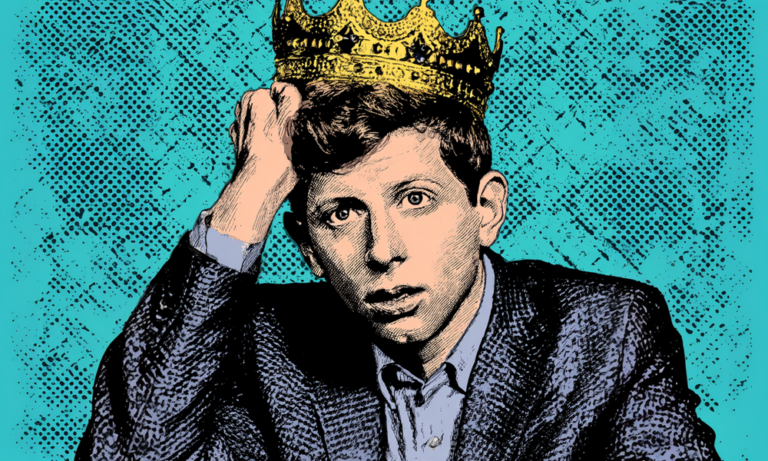Towards centaur-managers: who is afraid of Augmented Intelligence?

Fear of Innovation is part of Human history. It’s the fear that it will change us, that it will make us something other than Human. This fear has sometimes taken amusing turns, and puts into perspective the fear driven by AI today. Far from falling into the opposite trap, Marcos Lima, Professor of Marketing at SKEMA Business School, invites teachers to take this fear by the hand, to ensure that tomorrow’s managers are in tune with the times.
The pace of AI development and adoption has no precedent in the history of technology. Large Language Models like Chat GPT and the use of so-called neural networks to create life-like images (such as the image-generating tool DALL-E) are transforming the way managers create contents for Marketing, how they develop creative business solutions, and how they manage human resources. Faced with these tidal changes, business school professors may be confronted with the “flight or fight” instinct: to either avoid or oppose the changes. Let’s argue for a third response: teachers should adopt and adapt these technologies in business education. The real question is: how to prepare business students for these on-going, ever-changing professional challenges without falling into the extremes of moral panic, on the one hand, or the naïve techno-optimism, on the other?
If men learn this, it will implant forgetfulness in their souls; they will cease to exercise memory because they rely on that which is written, calling things to remembrance no longer from within themselves, but by means of external marks. … And it is no true wisdom that you offer your disciples, but only its semblance, for by telling them of many things without teaching them you will make them seem to know much, while for the most part they know nothing, and as men filled, not with wisdom but with the conceit of wisdom.”
Criticism of the art of writing in Plato’s “Phaedrus” (c. 360 B.C.E)
When confronted with disruptive technologies, humans tend to over-react and give in to doomsayers. As the passage from Plato’s dialogues above shows, the fear that new tools will inhibit human skills and discourage thought and learning is as old as human civilization. Sites like “The Pessimist’s Archive” catalogue a long list of hysterical reactions to books (“if we read too much fiction our taste is apt to become vitiated”, 1915), radio (“the murder of music”, 1933), television (“too much TV?”, 1956), and computers (“Cheats are scaring us stiff”, 2000).
Is AI a monster?
Of course, with hindsight we know that reading books is not a pernicious addiction, that radio fostered music creativity rather than destroyed it, we know that watching TV was not akin to “amusing ourselves to death” (a best-selling 1985 book by educator Neil Postman) and that computers have become a valuable tool of knowledge productivity.
Some argue that AI is different, that it is much more powerful than these technological predecessors, that it can replace human intelligence and therefore that it will destroy more jobs than it will ever create. Techno-optimists argue the contrary, that AI will create new kinds of work, in line with Joseph Schumpeter’s theory of “creative destruction”. Others even envision techno-utopias where all work will be done by robots and humans will live in permanent leisure.
Like previous disruptive technologies, AI will definitely change the way we work, live and entertain ourselves. However, rather than give in to the techno-pessimists or naively believe the panacea of techno-utopians, higher education faculty in general and business teachers in particular must reflect on how to prepare future workers to a world in which AI will be as much part of daily life as electricity, radio waves and engines.
A game changer
In 1997 Garry Kasparov was beaten by IBM’s Deep Blue in less than 20 moves. The following year, he organized the world’s first game of “Centaur Chess”, in which mixed teams of humans and AIs competed for the grand prize. Analogous to the mythic creature, which is half-human, half-horse, “centaur chess players” combined the long-term strategies of humans with the machine’s ability to analyze millions of possible game combinations at each turn – intuition and brute force.
This insight of Intelligence Augmentation through computers goes as far back as Vannevar Bush’s 1945 essay “As we may think”, anticipating how large databases could support humankind’s ability to retrieve the right information for specific tasks, thus enhancing our cognitive abilities to learn and solve problems. More than two decades later, Douglas Engelbart demonstrated in 1968 how a computer mouse, hypertext and video-conferencing technologies could help realize Bush’s vision in what has been known as “The Mother of All Demos”. Engelbart was one of the first to speak of “Intelligence Augmentation”.
Since then, we have taken these tools for granted. We have conquered time and space through bits, making human-to-human collaboration seamless in both synchronously and asynchronously. The recent advances in Artificial Intelligence make this vision of augmented cognition even more palpable: machines are suited to computational tasks that are hard for the human brain to perform, while human intelligence remains superior in domains such as empathy, aesthetic judgement, meaning making and ethical understanding.
Teaching tomorrow’s managers
In an increasingly complex world, future leaders will have to operate in highly competitive environments with high volatility and uncertainty. While humans are better at creating abstract frameworks, empathizing with unmet customer needs, leading people and understanding ethical dilemmas, machines are better at finding unseen data correlations, processing large sets of complex information and identifying complex patterns. Combined, these competencies can lead “centaur-managers” to make better product development decisions, become more effective leaders and better control resources.
Business teachers must therefore embrace AI and enhance human talents of creative and critical thinking. AI can be used by business students to summarize large volumes of text, identify unsuspected data correlations, create multiple case-study scenarios, and check for blind spots in case analyses using elaborate frameworks. At the same time, teachers must inspire students to higher standards of ethical transparency and intellectual honesty; acknowledging the use of AI in classroom deliverables should be as important as citing sources and using high quality references. Professors should reward students who succeed in producing critical and creative results by the advanced use of these tools, while discouraging lazy students who hastily copy-and-paste a poorly drafted output from a large language model. AI should be used as a cognitive partner, which can be used to challenge and instigate students to overcome their own biases and blind spots, as an extra member in the team or a devil’s advocate tutor. Collaboration among fellow humans should remain the cornerstone of business student projects, but this collaboration can be enriched by the speed and data-crunching abilities of AI tools. Thus, AI in business schools can lead to more personalized learning, better case studies with more complex simulations and scenarios and predictive analytics.
As the technology evolves, professors will have to be as willing to learn as their students. They will have to adopt an open-minded attitude towards incorporating new tools, experimenting with new methods and trying novel approaches to teaching and learning. Far from being a bogeyman, AI can become a valuable ally in preparing future generations to face a radically different workplace, where more complex problems will call for more powerful analytical tools. Professors must not fear AI or give in to moral panic attacks, nor believe that AI is a panacea that will solve all humankind problems, but rather find a middle ground where new ways of teaching and learning are necessary to develop the cognitive abilities of a new generation facing an evolving world, full of new challenges and opportunities. This is not the end of civilization, as some predict, but the beginning of a new era of Augmented Intelligence based on human-machine cognitive partnerships.



